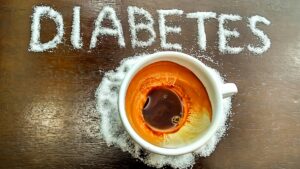For many people, coffee is their favorite drink because it gives them energy and a boost. But breastfeeding women often worry about the safety of coffee and the effects it can have on mother and baby. This article explores the link between drinking coffee and breastfeeding, and describes the pros and cons and safe amounts of caffeine during this important time.
What You Need to Know About Caffeine and Breastfeeding:
Coffee, tea, chocolate, soft drinks, and some medications contain a natural stimulant called caffeine. It works by stimulating the brain and nerves, making you more alert and energetic. When a breastfeeding woman drinks caffeine, the caffeine can enter her bloodstream and milk. Small amounts of caffeine eventually pass into breast milk, but babies break down caffeine much more slowly than adults, so it can build up in the body over time.
How Much Coffee is Suitable?
Most health experts say breastfeeding mothers can drink moderate amounts of caffeine without getting sick. According to the Centers for Disease Control and Prevention (CDC) and the American Academy of Pediatrics, it is safe for nursing mothers to consume up to 300 milligrams (mg) of caffeine per day (equivalent to two to three 8-ounce cups of coffee). ) (Monkey) . But different people have different sensitivities to coffee, and some babies may be more sensitive than others.
Possible Effects of Caffeine on Breastfed Infants:
Caffeine is considered safe in small amounts, but it is important to know what can happen to breastfed children if they drink large amounts of caffeine.
1. Irritable and Fussy
Some breastfed babies may become more fussy and irritable if their mothers drink large amounts of coffee. Caffeine can pass into breast milk and make babies fussy. They may also have trouble falling asleep or settling down.
2. Sleep Problems
Caffeine is a stimulant that can change the way you sleep. When breastfeeding mothers consume large amounts of caffeine, their babies may experience sleep problems, including difficulty falling asleep and staying asleep.
3. Buildup in the Body of Premature or Younger Babies
Caffeine is broken down more slowly in premature or very young babies than in older babies. Because their metabolism is slower, they can store more caffeine, which can make the effects of caffeine stronger and lead to more sleep problems, nervousness, and irritability.
Benefits of Moderate Coffee Drinking for Breastfeeding Mothers:
Although some may worry, breastfeeding mothers who drink moderate amounts of coffee can reap many benefits.
1. Think Energetically and Clearly
Caring for a baby can be tiring, and caffeine can give you much-needed energy and alertness. This can make it easier for mothers to meet the demands of breastfeeding and other parental responsibilities.
2. Mood Better
Research shows that caffeine can improve your sense of well-being. If new mothers are experiencing mood swings or postpartum depression, a moderate amount of caffeine can cheer them up and make them feel better.
3. Better Interaction with Others
People often drink coffee with other people, and having a cup of coffee with family or friends is a great way for new moms to meet new people and get support. These things are good for their mental and emotional health.
How to Control Caffeine Intake While Breastfeeding:
To ensure that both mother and baby experience the good effects of coffee without any adverse effects, here are some helpful tips to control caffeine intake while breastfeeding:
1. Observe Your Baby’s Reaction
Be extra careful and observe your baby’s behavior and sleep patterns. If you notice that coffee makes you more irritable, restless, or sleepless, you may want to reduce your intake to see if things get better.
2. Write Down When You Drink Coffee
When you give your baby coffee, the effects of coffee on him or her are affected. Drinking coffee immediately after breastfeeding gives your body time to process the caffeine before your next feeding. This can help reduce the amount of caffeine that passes into breast milk.
3. Reduce Other Sources of Caffeine
Remember that caffeine isn’t just in coffee; it is found in many foods and drinks. Watch how much caffeine you consume each day by considering other sources of caffeine, such as tea, soft drinks, chocolate, and some medications. You can stay within limits by reading labels and learning about hard-to-find sources of caffeine.
4. Choose Caffeine-Free Drinks
Switching to decaffeinated coffee allows you to drink less caffeine and still enjoy the taste and habit of coffee. You can drink coffee, tea or even caffeine-free soft drinks.
5. Drink Enough Water
Coffee contains a chemical called caffeine, which makes you urinate more, causing you to lose water. Nursing mothers need to stay hydrated to keep their milk flowing and stay healthy. Drink a lot of water all day long to combat the effects of frequent urination that coffee causes.
6. Talk to Your Doctor or Nurse
If you are concerned that drinking caffeine may affect your health, talk to your doctor. They can provide you with tailor-made advice and help you make well-considered choices about nutrition and lifestyle.
Other Ways to Get More Energy than Caffeine:
If you find that reducing or eliminating caffeine helps your baby perform better and sleep better, there are other ways to get more energy besides caffeine.
1. Get Enough Rest
Get as much rest and sleep as possible. You should take naps when your baby is sleeping, and you should try to establish a regular sleep schedule with your baby. Getting enough rest is important to maintain energy and health.
2. Eat Healthy
A healthy diet can provide you with energy that lasts all day. Eat lots of different foods, such as vegetables, fruits, whole grains, lean proteins and healthy fats. Stay away from processed foods and sugary snacks that can make you feel tired.
3. Stay Active
Regular physical activity can give you more energy and make you feel better. Gentle exercises like yoga, walking, or postpartum fitness classes can help you stay active without getting too tired.
4. Learn to Deal with Stress
To stay healthy and energetic, it is important to deal with stress. To reduce stress and improve your mood, try relaxation techniques such as deep breathing, meditation, or mindfulness.
5. Ask for Help
Don’t be afraid to ask for help from family, friends, or a new mom group. Talking to others about your problems and experiences can make you feel better and provide you with helpful advice.
Conclusion:
Moderate amounts of coffee are safe and beneficial for breastfeeding mothers, giving them more energy, better mood and better social skills. But it’s important to pay attention to your baby’s reactions and watch how much coffee you drink while wearing work clothes. By following this article and talking to your doctor before drinking coffee, you can enjoy your coffee better while reducing the risk to your baby. Remember that every mother and baby are different. The key to a healthy and happy breastfeeding journey is finding the right combination for your family.
FAQs:
1. Can I drink coffee while breastfeeding?
Yes, it is generally considered safe to drink coffee in moderation while breastfeeding. But it’s important to pay close attention to your baby’s reaction to coffee and vary the amount you drink accordingly.
2. How much coffee can you drink after giving birth?
The American Academy of Pediatrics (AAP) says that breastfeeding women should consume no more than 300 milligrams of caffeine per day. This is approximately the equivalent of two to three 8-ounce cups of coffee.
3. Does caffeine in breast milk change your baby’s sleep patterns?
Yes, caffeine can pass into breast milk. Drinking too much can change your baby’s sleep patterns. Pay close attention to your baby’s behavior and cut back on caffeine if you notice changes in his sleep patterns.
4. Do you know what the long-term effects of drinking coffee while breastfeeding are?
Although there is no strong evidence of long-term effects, babies can become irritable, have trouble sleeping, and develop other problems if their mothers consume too much caffeine while breastfeeding. To avoid problems, it is best to maintain moderation.
5. Should I avoid all sources of coffee while breastfeeding?
Many people get energy from coffee, but it is not the only one. Caffeine is also found in soft drinks, candy, tea, and some medications. While breastfeeding, you should be aware of the amount of caffeine you consume from different sources.



